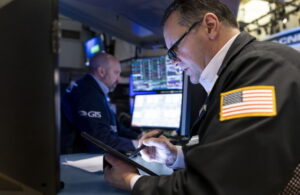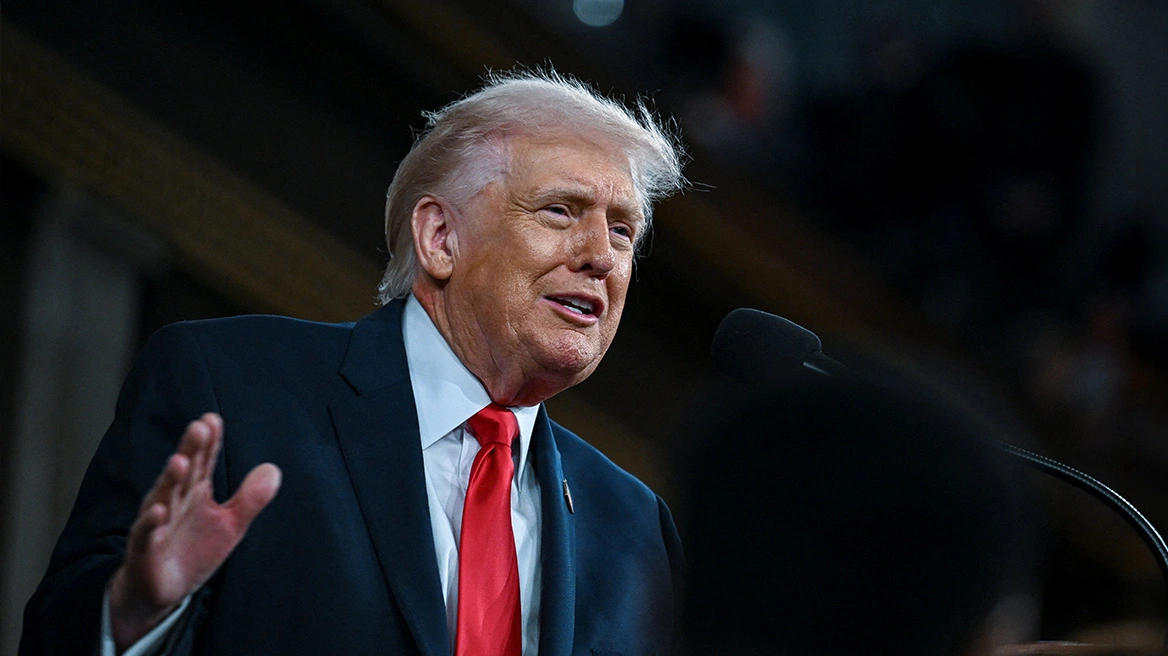Today’s session was one of continued upheaval for Wall Street, as a strong wave of liquidation in recent hours centered on the technology sector changed the picture on the indices… evaporating the gains earlier measured (up to more than 1%) by the S&P 500 and Nasdaq.
In the end the Dow Jones gained 0.59% “catching” 41,335 points which is another record. The S&P 500 was unchanged with a subtle 22-point (0%) decline to 5,591 and the Nasdaq fell 0.23% to 17,516.
In the bond markets, yields gained ground with the 10-year yield strengthening to 3.871% and the 2-year yield climbing to 3.895%.
Dow heavyweights were in early bullish territory as new jobless claims data pointing to a further gradual softening of the labor market acted as an encouragement towards monetary easing by the Fed.
However, in the S&P 500 and Nasdaq the upper hand between buyers and sellers of technology stocks alternated, affecting the signs. It is typical that intraday gains recorded by both indices had exceeded 1%.
Nvidia’s shares came under heavy pressure throughout the session, remaining in negative territory and ending up losing around 6%.
With this drop, the value of the artificial intelligence microchip giant’s value shrank by over $150 billion in one day, despite the fact that its stock is still measuring spectacular gains of 150% for the year.
Although the company reported strong revenue and earnings, above expectations, for the second quarter, it essentially fell victim to its own tremendous success over the past two years by allowing the market to raise the bar of expectations too high.
Commonly investors were hoping for even stronger guidance for the third quarter and despite the fact that CEO, Yensen Huang, assured investors that delays in next-generation microchips would not derail production plans, investors were not happy.
Besides, although the company enjoys the lion’s share of the industry pie for now, new startups have begun to emerge with promises of more specialized and cheaper microchips. So if the next-generation microchips are delayed, the market is worried about the future performance of the company, whose 122% revenue growth was essentially the lowest in a year.
Thus, doubts have also flared up about the performance of artificial intelligence at a time when all Big Tech has made exorbitant investments in the industry, not knowing when and especially if they will bear fruit. So given that AI was the chariot for multiple first-half records, it was logical and logical that uncertainty would prevail about its performance and thus the direction of Wall Street.
“Death, taxes and strong Nvidia earnings are the three things we can count on. And that’s the issue if the magnitude of the earnings pace is lower than what we’ve seen so far,” commented Carson Group’s Ryan Dedrick.
Other losers of the day were Dollar General’s shares, which had the worst performance in the company’s history with a 30% drop, as well as Okta and Birkenstock after posting poor results.
In contrast, among the gainers were Boeing’s stock, which rebounded after a three-day downward streak, as well as Affirm and Best Buy after reporting good quarterly performance.
Ask me anything
Explore related questions





